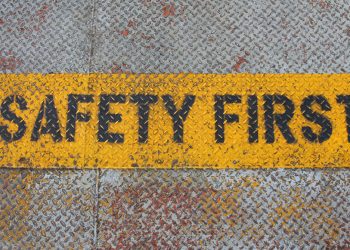CHIRP – Maritime Feedback 02/2014

Confidential Hazardous Incident Reporting Programme (CHIRP) has received a report regarding marine operating & maintenance manuals.
Report text:
“I would like to share my recent experience on this subject. I am a second engineer officer with 38 years experience serving onboard a two year old freight ferry sailing under XX classification.
“The following criticisms are by no means limited to the vessels main propulsion manufacturer. Virtually every technical manual onboard sub-standard in one or more ways as described below.
- Manuals poorly translated from their original language. The information frequently being so brief that under – standing is difficult, ambiguous or impossible.
- Generic instructions which often do not relate specifi – cally to the equipment fitted.
- Maintenance schedules which make reference to tasks which are not applicable to the machinery fitted. For example change the oil in the flexible coupling when what the manual is actually referring to is the detuner which is lubricated from the main lub oil supply and therefore does not have any oil to change. (It is also likely that by the same token maintenance of some equipment that is fitted has been omitted).
- Emergency procedures, which are belatedly found not to apply to the machinery fitted and no emergency procedures for the machinery which is fitted forcing the operator to make it up as he goes along.
- Poor quality drawings and descriptions which lack detail or are generic in nature and not specific to the machinery fitted in the ship leaving one unsure if the job has been done correctly.
- Operating parameters omitted, for example maximum exhaust temperatures.
- Instructions which refer to tightening nuts or bolts but do not state the torque.
“In fact the only area in which the manuals are thorough is in the excessive effort put into stating safety measures and disclaiming responsibility for accident or injury.
“In addition to the poor quality of the technical library I would also like to highlight the appalling computer based planned maintenance system. My criticism of this system is two fold. Firstly the program itself is horribly complicated and user hostile resulting in difficulty in operating it properly with the potential for maintenance tasks to be missed. Secondly the quality and paucity of the information contained in it means that the infor mation and instructions which it should hold have to be sought elsewhere if they can be found at all.
“I lay the blame for this lack of quality information entirely at the feet of the classification societies who issue type approval for machinery without bothering to examine the manuals for the quality of their content, in many cases theydo not appear to have tested the equipment either. There seems to be a deliberate attempt by manu facturers to limit the amount of information supplied with equipment so that the operator is forced to call a service agent a trend that should be nipped in the bud with the manufacturers being reminded that a ship at sea should have all the information necessary to enable it to solve its own problems. Similarly the planned maintenance systems should be properly appraised and sub-standard software rejected.
“Sadly I have to report that the state of technical information onboard is poor and has not improved at all in fact it has probably deteriorated.
“I must stress that my employer, to whom this vessel is chartered, is in no way responsible for these deficiencies and when requested for support does its very best to assist and has a very responsible attitude.
The style and presentation of engine operation & maintenance manuals should be subject to review and a set of minimum standards agreed and imposed by the relevant classifica tion societies. In these days of inexpensive desk-top publishing, manu – facturers could easily arrange for a bespoke publication to be printed and presented from its database.
| Maritime Advisory Recommendations |
|
IACS Recommendation 71 guide for the development of shipboard technical manuals
A shipboard technical manual is a generic term for any document that explains how to use, maintain and operate the ship and its equipment. A technical manual is an essential part of the product and its usability has con – siderable importance for the ship operators. Accordingly the provision of suitable shipboard manuals should be re – cognized as a major responsibility area.
Information should be accurate and complete. Text should be clear and concise. Sentences should be as short and simple as the subject allows. Paragraphs should be short. Technical descriptions should be system or function based. Instructions should be procedure based.
The information should be organised in a hierarchical and consistent manner by use of headings. Step numbering should be used to support the structuring into levels of information. Illustrations (photo, drawings, and graphs) should be used to support information and instruction text
Procedures for Port State Control the IMO states:
Manuals, instructions, etc. 3.5.51 The PSCO may determine if the appropriate crew members are able to understand the information given in manuals, instructions, etc., relevant to the safe condition and operation of the ship and its equipment and that they are aware of the requirements for maintenance, periodical testing, training, drills and recording of log book entries.
(IMO MSC.1/Circ.1253 dated 26 October 2007)
| Shipboard Technical Operating and Maintenance Manuals |
|
Source: CHIRP
For more information please read theMaritime Feedback 02/2014 issued by CHIRP





























































